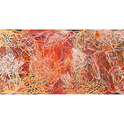Every general election represents a contest over the national narrative. In Australia, John Howard's Liberal-National coalition government was defeated in an argument over ideas about the nation. But Kevin Rudd's Labor party managed to move the struggle over national identity away from cultural concerns and reframe it in economic terms—specifically workers' rights. Equality was married to fraternity in a single phrase that came to dominate the campaign: "Australian working families." Facing a government that had presided over high growth and employment, Labor retook the political heights of Australian nationalism through an emphasis on rights at work.
Since the 1970s, Labor has depended for its electoral success on an alliance between traditional labour and newer progressive movements, including identity-based interest groups. The Whitlam (1972-75), Hawke (1983-91) and Keating (1991-96) governments all relied on this sometimes uneasy association. By the mid-1990s, Paul Keating's government had became deeply unpopular, at least in part because it was seen as preoccupied with identity politics and elite cultural concerns in the face of economic hardship. At the 1996 election, the tensions within the Labor coalition were exploited by John Howard, who used the discontent caused by economic adversity to reach out to the more conservative elements of Labor's base.
Howard's antagonism to Keating's cultural rhetoric meant that the essential continuity of economic policy between the two governments often went unnoticed. And as the fiscal reforms that had been introduced by Keating's government began to bear fruit, any popular impetus to change direction in economic policy rapidly subsided. The success of the economy, combined with Howard's aggressive cultural politics, created a dilemma for Labor. Because the party had dropped mention of Keating after its hammering in 1996, Howard and his treasurer, Peter Costello, were able to claim all the credit for the subsequent boom. On the other hand, any attempt by Labor to differentiate itself from the Liberals on cultural issues would simply play into the hands of Howard, who could continue to portray the opposition as captive to cosmopolitan elites.
The turning point came in 2005. Taking advantage of an electoral triumph the previous year in which his coalition gained control over both houses of parliament, Howard introduced the euphemistically named WorkChoices industrial relations legislation, which abolished the previous system of part-centralised fixing of wages and working conditions, while destroying collective bargaining and seeking to entrench individual contracting with few guarantees. The reforms were never popular. Although the flourishing economy softened the immediate impact on workers, deep-seated fears arose among parts of the electorate about what would happen when things were less rosy.
WorkChoices created a divide in the electoral alliance that had brought Howard to power. Those workers who had supported Howard because of antagonism towards Keating's preoccupation with cultural politics were faced with a government that had legislated against their economic interests. Howard's team attempted to refocus the debate on "cultural values." At last weekend's election, the Liberals continued to hope right up to the last minute that Australian workers might vote against their own economic interests. Crucially, Rudd refused to fight on cultural grounds, having warned even before he became opposition leader that it was "critical that social democrats recognise that the culture war is not just a diversion," but "a fraud." The gift of WorkChoices was that it gave the opposition a clear point of differentiation from the government that was not only consistent with historic Labor values, but was of broad-ranging appeal. Ironically, it was now Howard who was seen to be preoccupied with elite concerns.
WorkChoices drove blue-collar voters back to Labor for economic reasons, despite the fact that the country as a whole continued to prosper. The contest came down to two different visions of Australian national identity, framed around workplace issues. The government's vision was an Australia of the individual, bereft of collective support. On the other hand, Labor's opposition to WorkChoices represented an explicitly socially democratic view of society, in which the government has a role in moderating the labour market. Labor was elected because it opposed the government's industrial relations laws through a prism of debate that avoided divisive cultural politics and reframed a class-based division as a question of national identity. The unpopularity of WorkChoices allowed Kevin Rudd's Labor to make the better case that it spoke for the nation.










